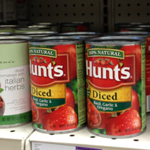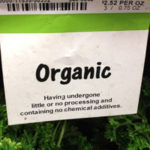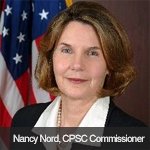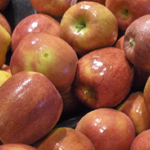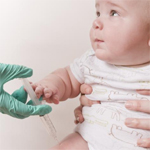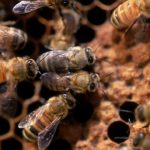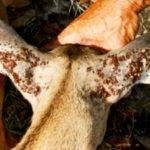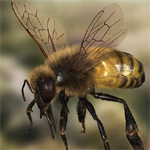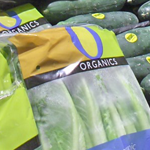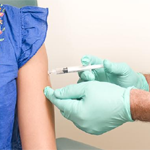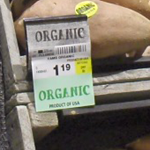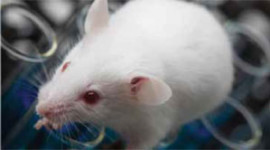"Four Foods You Should Probably Eat," by American Council on Science and Health. CNN’s Dr. Sanjay Gupta interviewed David Jack, an editor from Men’s Health about five foods one should supposedly never eat. And the ridiculous claims made by Jack were soaked right up by Gupta. James Cooper sums up the poor science behind each claim made by “nutrition expert” Jack in an on-point editorial in the Examiner entitled “Sanjay Gupta bats 1 in 5 on foods you should never eat.” The five foods were … [Read more...]
Chemophobia and Food Safety
"Food Fears Continue to Plague Americans, Whipped by Chemophobia," by American Council on Science and Health. In a recent issue of the journal Food Security, Dr. Gordon Gribble, Professor of Chemistry at Dartmouth College (and a long-time ACSH advisor) writes about Food Chemistry and Chemophobia. The latter is a term meaning an irrational fear of chemicals in the environment: that no matter how tiny an exposure one faces, it is to be avoided at all costs. Dr. Gribble points out how unnecessary … [Read more...]
Junk Science on Chemical Effects on Children
"How Abysmal Scientific Research Is Used To Scare America's Parents," by Geoffrey Kabat. We have become accustomed to a steady barrage of reports of hazards lurking in our environment that MAY pose a threat our health and that of our children. These include, among others, low-level radiation exposure from nuclear power plants and nuclear waste; possible water contamination from hydraulic fracturing; and exposure to a wide range of chemicals, including pesticides and industrial pollutants, in … [Read more...]
“Certified Naturally Grown” without Red Tape
"'Certified Naturally Grown' - No Synthetic Pesticides, No Big Organic Fees,"By >Hank Campbell. What happens if you adhere to every process restriction that a corporation that sells its food using the 'organic' label adheres to, but you don't pay the fees to get a government 'certification' and still try to claim you are 'organic' at a local Farmer's Market? About $20,000 in government fines, it seems. Read the full article at Science 2.0. … [Read more...]
CPSC Commissioner Nord: Problems Remain with Consumer Product Safety Improvement Act
"CPSIA’s Fifth Anniversary," by Nancy Nord. On August 14, 2008, Congress passed and the President signed the Consumer Product Safety Improvement Act (CPSIA). It contained new regulatory authorities and enforcement tools (many of which I suggested to Congress when I served as acting chairman) to make it easier for CPSC to find and recall unsafe products made around the world. Five years ago today, the agency began to follow through on my pledge to implement the law fully and fairly. … [Read more...]
Pesticide Residue Calculator
"Calculate Your Risk from Pesticide Residues," by Angela Logomasini. Ever worry how much pesticide residue you consume daily? Environmental activists, particularly at the Environmental Working Group, suggest that you can reduce your risks—and fears--by eating fewer of the fruits and vegetables with the highest residues, such as apples, and more of others, such as onions. IWF’s Julie Gunlock and I along with many others have pointed out why EWG’s claims are simply wrong. Read the full story on … [Read more...]
Court Ruling on Autism and Vaccines Not About Science
"Court Rulings Don't Confirm Autism-Vaccine Link," by Emily Willingham. There’s a post making the rounds courtesy of something called “Whiteout Press” with the headline “Courts confirm vaccines cause autism.” It’s spreading across sites, through chains of elementary school parent communities, and onto radars of other communities that overlap. In other words, it’s viral. If only there were a vaccine for it. Read the full article on Forbes.com. … [Read more...]
Anti-Alarmist Role Model
"Emily Oster: Anti-Alarmist Role Model," by Julie Gunlock. Saturday's Wall Street Journal ran an article covering the many warnings pregnant women face today. It wasn’t just the content of the piece that caught and kept my attention; it was what the writer represented—a woman in charge of her own health and the health of her baby. This woman wasn’t going to be pushed around or unnecessarily frightened by the alarmists. Read the full story on IWF's Inkwell Blog. … [Read more...]
Dangerous Reversal on Flame Retardants
"The Chemphobes Deadly Agenda: Flame Retardants," by Julie Gunlock. In January 2000, a fire broke out in a dormitory at Seton Hall University in New Jersey ... In 2001, the New York Times covered the aftermath of the blaze and focused on demands that the school install sprinklers and adopt “mandatory fire retardancy standards” for dorm furniture. .... Now, over a decade past the Seton Hall fire, memories have faded and people are literally inventing things to fear. Enter the chemphobes who have … [Read more...]
Honeybees & Pesticides
"Perspectives on Honeybees & Pesticides," by Angela Logomasini. If you believe the headlines, honeybees may soon be endangered, pesticides are to blame, and regulations offer an easy solution. Yet headlines belie the truth of the matter: Some honeybees have left their hives to never return, but we really don’t know why. Referred to as “colony collapse disorder,” the disappearance of honeybee colonies raises concerns that it will be increasingly difficult to produce food without enough of … [Read more...]
No ‘Bee-pocalypse,
"Everyone Calm Down, There is No 'Bee-pocalypse,'" Shawn Regan. Honey BeeThe media is abuzz once again with stories about dying bees. According to a new report from the USDA, scientists have been unable to pinpoint the cause of colony collapse disorder (CCD), the mysterious affliction causing honey bees to disappear from their hives. Possible factors include parasites, viruses, and a form of pesticide known as neonicotinoids. Whatever the cause, the results of a recent beekeeper survey suggest … [Read more...]
Judge Cans Prop. 65 Label
"California Judge Rules on the Side of Sound Science – No Warning Labels Required," by American Council on Science and Health. In the culmination of a five-week trial, California’s Judge Brick ruled that health warnings would not be necessary on various fruit and vegetable products, 100% juices and baby foods, from companies including Del Monte, Dole, Gerber, Hain-Çelestial, J.M. Smucker, Seneca Foods and Welch’s. Read the full story on the American Council on Science and Health's website. … [Read more...]
Health Toll of Anti-Pesticide Policies
"Humans Pay the Price for Anti-Pesticide Policies," by Angela Logomasini. I recently went home to Long Island to find that one of my siblings was undergoing treatment for a dangerous tick-transmitted disease. This isn’t the first time my family has suffered from a tick-related illness, and I blame New York State officials in part for outlawing useful tools to fight the region’s growing tick and mosquito populations. Read the full article at the Daily Caller. … [Read more...]
The Data on BPA and Breast Cancer
"BPA And Breast Cancer: When Academics Spin Statistics," by Trevor Butterworth. A new study, funded by the National Institute of Environmental Health Sciences (NIEHS), and published in a journal the institute subsidizes – Environmental Health Perspectives (EHP) – raises an alarm. This is not, in itself, unusual; EHP is a repository of alarming claims about the environment; but what makes this study different – and alarming in its own terms – is not the claim that “human relevant” exposure to … [Read more...]
BPA and Infertility
"An Alarming Call for BPA Research Funding," by Angela Logomasini. The headlines are out. The chemical Bisphenol A (BPA) is now “linked to infertility.” How do we know that? Researchers exposed immature eggs left over from fertility treatments to high levels of BPA in the lab. The result, notes The Boston Globe, was: “Only 35 percent of eggs exposed to the lowest levels of BPA had a normal number and configuration of chromosomes after they fully matured compared with 71 percent of those in a … [Read more...]
Do We Need TSCA Reform Reform?
"Is TSCA Reform Reform Necessary?, by American Council on Science and Health. No, that’s not a typo. With “reform” of the Toxic Substances Control Act (TSCA) almost a reality, Sen. Barbara Boxer (D-CA), chair of the Environment and Public Works Committee, has decided that the revised law was itself in need of revision, threatening its very existence. Here’s the backstory: for what seems like decades, environmental activists have been calling for “reform” of the 1976 chemical safety bill, … [Read more...]
There’s No Such Thing as a Natural Remedy
"Don’t be Fooled by ‘Natural’ Buzzwords", by Christopher Labos. I learned a new word recently. A colleague introduced me to the term “chemophobia” — the fear of chemicals. He showed me an article in the New York Times Magazine about people’s preference for taking a “natural” remedy over standard medication. This feeling is understandable, and I’ve come across it many times, but I was surprised to see that it had actually been given a name and that people were writing in defense of it. What I … [Read more...]
Accidental Bee Kill Not Excuse for Bans
"A Stinging Rebuke of Anti-Agriculture Environmental Activists," by Jeff Stier. An estimated one hundred people braved scorching outdoor temperatures to attend a memorial service earlier this month. The honorees, however, were not heroes, community figures, or even human. They were bees apparently killed by accident in Wilsonville, Ore. Deemed a "bee kill," the insects were found dead in a Target parking lot after a pesticide was sprayed on trees infested with aphids. Media attention to the … [Read more...]
Certified Organic, Yet Untested for Safety
"Organic Crops Are Tested For Pathogens, Right? Nope," by Mischa Popoff. View of rows of green and red lettuces.The United States Department of Agriculture (USDA) prohibits synthetic nitrogen fertilizer in organic production and encourages natural compost. But it does not test for un-composted feces, relying instead on record-keeping and record-checking. As I have said before, this can create serious problems. At least 140 people across eight states have now fallen ill after consuming … [Read more...]
Greens Exploit Accident for Anti-Pesticide Agenda
"Anti-Pesticide Group Deplorably Exploits Tragedy in India to Promote Their Agenda," by American Council on Science and Health. Last week, 25 children in India died — and many others sickened — as a result of organophosphate pesticide poisoning which contaminated the children’s school lunches. It is suspected that the rice or cooking oil used to prepare the food contained lethal levels of the neurotoxin. This is even more of a tragedy given that this school lunch program was developed by the … [Read more...]
Dangerous Results from Alarmism Regarding Vacines
"The Autism-Measles Panic, 15 Years Later," Emily Willingham. Several news outlets today are reviewing the measles outbreak in Wales, citing public health experts who lay the blame for the burst in cases squarely at the feet of Andrew Wakefield’s bogus MMR vaccine scare in 1998 and the subsequent media coverage. The Wall Street Journal has a particularly in-depth story [hits paywall if you click the link here, but clicking from Google News seems to give full access], “Fifteen Years After Autism … [Read more...]
No Link between Autism and Mercury in Seafood
"Mercury And Autism Not Linked, Again," by Emily Willingham. A “sentinel” population in the vastness of the Indian Ocean has long attracted scientific interest because of how much dietary methylmercury its members consume. The thing is, though, that as much as scientists have looked, they have yet to find any problems related to this intake. In the latest study with this ‘sentinel population’, researchers again have found no link, this time between autistic behaviors and maternal mercury … [Read more...]
Risks of “Green” Goods and Food
"Making Products and Food Less Safe," by Julie Gunlock. The environmental group behind the Mind the Store Campaign is dead set on making products less safe. That makes me mad. As a mother, I simply don’t understand why this group is so determined to take perfectly safe and reasonably priced products and make them less so—especially when many of the products the campaign targets are for kids. Thankfully, the campaign’s first phase (to pressure retailers to take products off store shelves) failed … [Read more...]
Is Organic Food Really More Ethical?
"Organic Food – What is an ‘Organic’ Label Really Worth?" by Jon Entine." Consumers are willing to pay a premium for organic products, but the realities can mean you get little more than a psychological boost for your buck. Supermarkets in North America and Europe are overflowing with organic-labelled fruit, vegetables, eggs and meats. More than 80 countries have organic standards and products carry one or more of 200 seals, logos and certification claims. But are consumers able to make informed … [Read more...]
Unreasonable Precaution
"The Precautionary Principle is a Blunt Instrument, a 90s Throwback Out of Place in an Era of 'Smart Solutions' and Big Data," by Tracey Brown. A world of over seven billion people faces some pretty complex questions about the trade-offs involved in producing food, using resources, reducing disease and achieving the societies and environments in which we want to live. There's a collision between short-term and long-term outcomes, narrow interests and broader ones, and between problems and … [Read more...]
